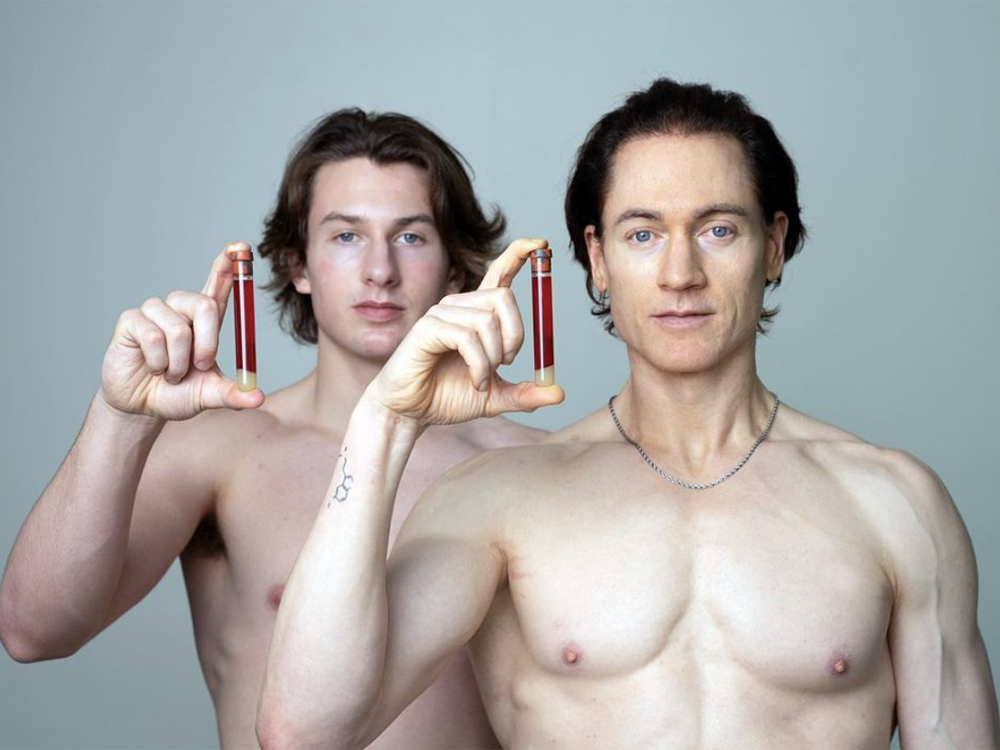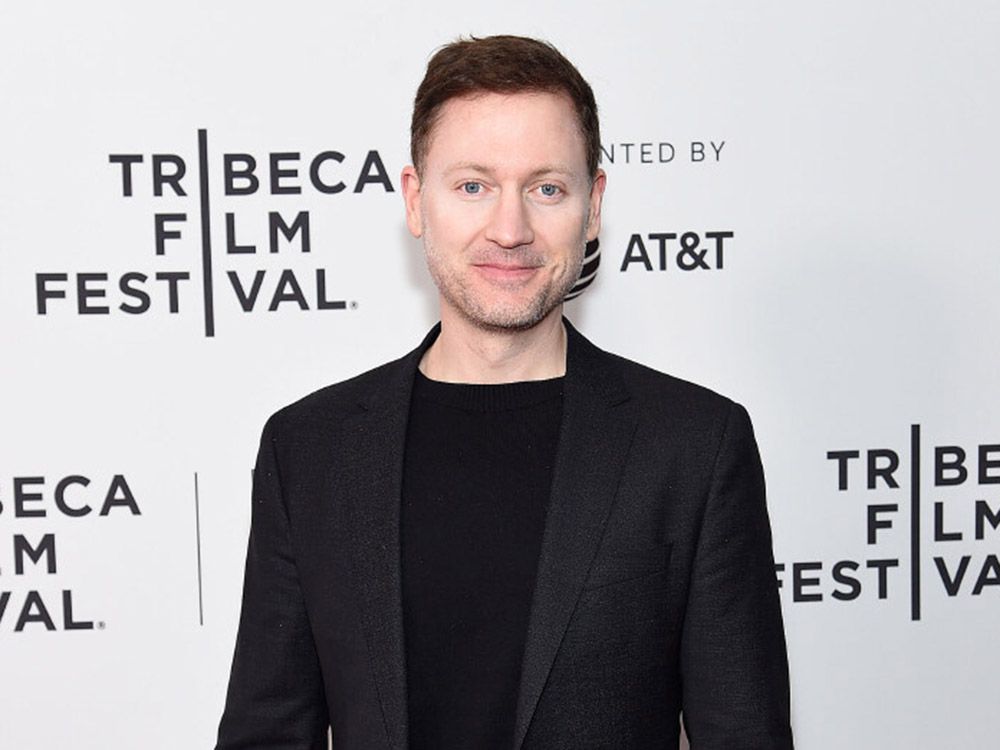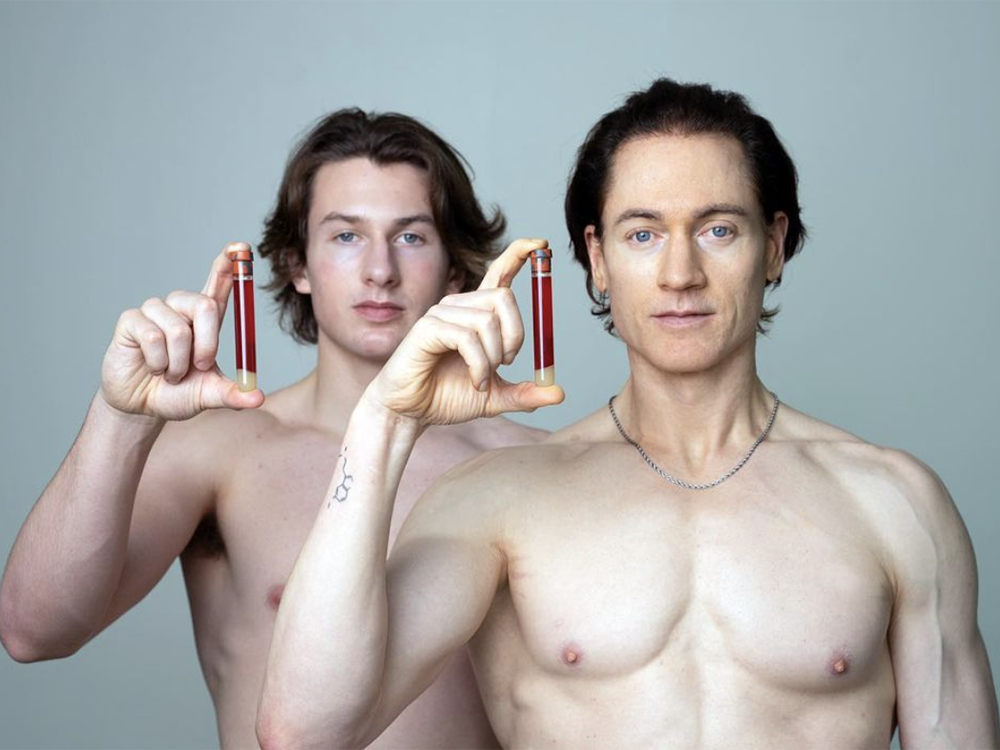
Tech entrepreneur and longevity crusader is thinking of ditching his “pain-in-the-ass” anti-aging nutrition and supplements company to focus on his “Don’t Die” movement, a community of likeminded biohackers “united in defeating all causes of human and planetary death.”
In a lengthy interview with
the 47-year-old California multimillionaire said he is “so close” to shutting down or selling Blueprint, a wellness company devoted to “maximally slowing” aging and reversing aging that’s already occurred.
“I’ve been talking to people about this. I don’t need the money, and it’s a pain-in-the-ass company,” Johnson told Wired’s Katie Drummond.
Johnson said Blueprint evolved from his own personal search for a clean, low-in-heavy-metals protein powder into a business venture that was just “trying to do people a solid. The problem is now people see the business and give me less credibility on the philosophy side. I will not make that trade off … So yeah, I don’t want it.”
Here’s what to know about Johnson, Blueprint, his new religion and why he believes a crude AI copy of Bryan already exists.
Who is Bryan Johnson?
Johnson, who told Wired he grew up poor (“My mom made my clothes”) and remained so until he was 34, made a vast sum after selling his mobile payment processing platform to PayPal for a reported US$800 million,
The self-described most measured human on the planet, Johnson takes 40 odd vitamins and supplements daily as well as hundreds of daily measurements of his heart, liver, lungs, kidneys and other body organs so that they may “speak for themselves what they need to be in their ideal state.”
In 2023, Johnson, his then 17-year-old son and Johnson’s father participated in a
multi-generational plasma exchange.
Johnson received plasma from a litre of blood siphoned from his son at a Texas spa in the hope his son’s blood would make him younger.
The plasma swap apparently had a null effect: In January, Johnson
that he was no longer injecting his son’s blood and had “upgraded” to another controversial plasma protocol.
I am no longer injecting my son’s blood.
I’ve upgraded to something else: total plasma exchange.
Steps:
1. Take out all blood from body
2. Separate plasma from blood
3. Replace plasma with 5% albumin & IVIGHere’s my bag of plasma. Who wants it?
🧵 pic.twitter.com/rUScTIDea6— Bryan Johnson (@bryan_johnson) January 28, 2025
Johnson eats all the day’s food before noon and sticks to a strict high-fibre, “veggies and legumes,” no alcohol, no sugar diet that makes him feel sharper while avoiding “post meal dead zones,”
Last year, in a therapy dubbed “Project Baby Face,” Johnson attempted to restore volume he’s lost on his face from a calorie-reduced diet with fat injections in his temple, cheeks and chin. He didn’t have enough of is own body fat so he used donor fat. It didn’t go well: “Immediately following the injections, my face began to blow up,” Johnson
. “And then it got worse, and worse, and worse until I couldn’t even see,” a severe allergic reaction.
What is Project Blueprint?
Johnson has explained how, In 2021, “I endeavoured to figure out proximity to longevity escape velocity. How far away are we from one year of chronological time passing and one staying the same age biologically? I called this Project Blueprint.”
He set out with his team to build an algorithm that would help him not die.
Blueprint sells “longevity” supplements, mixes, capsules, powders, snacks, travel packs and biomarker testing kits.
In response to a New York Times story on Blueprint published earlier this year, Johnson told Wired the story “painted it like we are in some kind of emergency financial situation. That is not the case. We are break-even, and I’ve said that publicly many times. We’ve had profitable months; we’ve had loss months. I’ve been very clear: We priced or products at the exact level to basically be break-even. Additional margin is just not worth it to me.”

Does Bryan Johnson think he’s going to die?
When asked by Wired to respond true or false to the statement that at some point in the future he will no longer be alive, Johnson, who sports a “broomstick-straight posture and pallid complexion,” as per
Jason Rogers, responded in the negative.
Humans “have this real possibility of extending our lifespans to some unknown horizon. So that’s extension,” Johnson said.
“But we also have the ability to begin moving ourselves to computational systems. So currently, in a very crude form, I have a Bryan A1 that has digested everything I’ve ever said.”
“You do currently have this,” Wired asked.
“I do,” Johnson responded. “And that Bryan A1 is pretty good,” he said.
“When you give birth to superintelligence, you can start extending lifespans to some unknown horizon: 200 years, 1,000 years, 10,000 years. Millions of years. We don’t know,” Johnson told Wired.
“When that happens, the entire game of humanity shifts from that singular focus on wealth accumulation and status and prestige to existence. Now, embedded in that existence, we may still play games of power, but it will be conditioned that existence itself is the highest virtue.”
What’s Don’t Die, Johnson’s new movement?
In March, Johnson announced that he was
that would soon become history’s “fastest-growing ideology.”
Don’t Die or DD, “means something different to everyone,” Johnson writes on
, where people are invited to “join or die.”
Among its goals, that earth be “a sustainable planet for those who choose life, and to secure the future of human existence with the rise of artificial intelligence.”
Step 1: “Identify the source of death,” meaning biological aging.
Step 2: “State your goal,” ideally to “personally achieve age escape velocity where one year passes and I remain the same biological age.”
According to Johnson, 5,000 people have so far committed to DD’s “Self Experimentation Study,” rigorously measuring their biomarkers, while 127 leaders have launched “Don’t Die” communities in their city.
National Post
